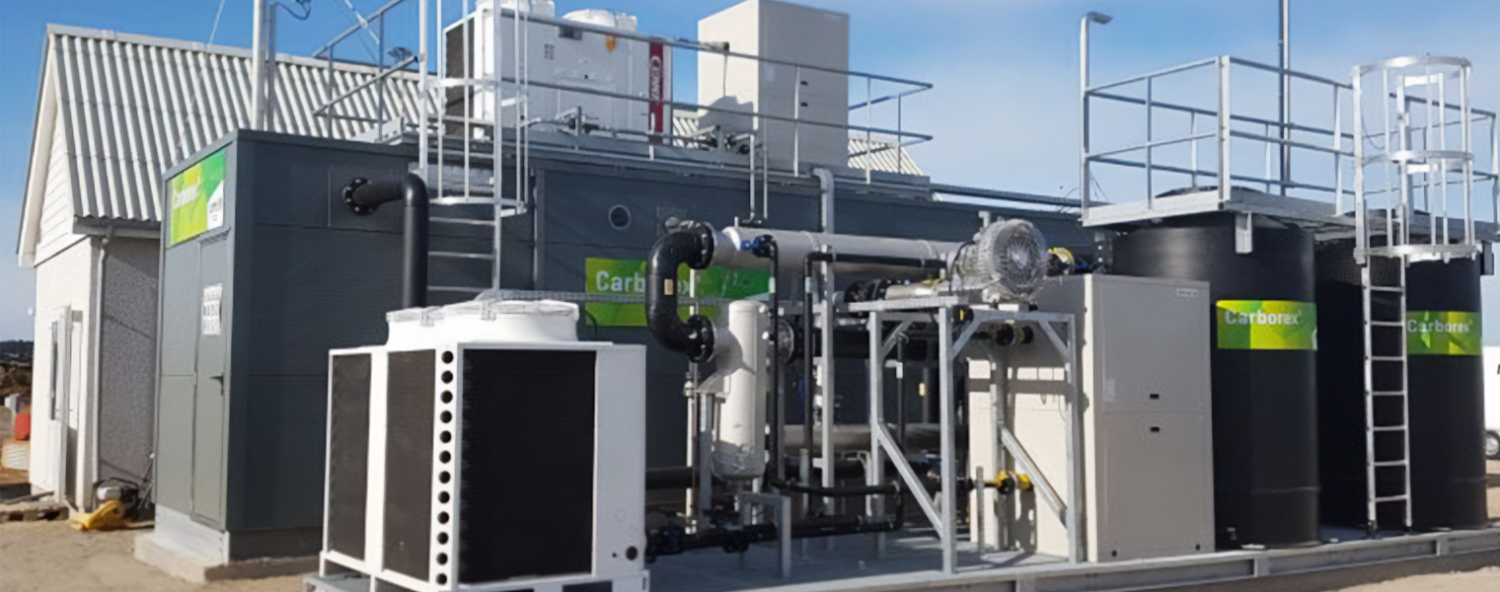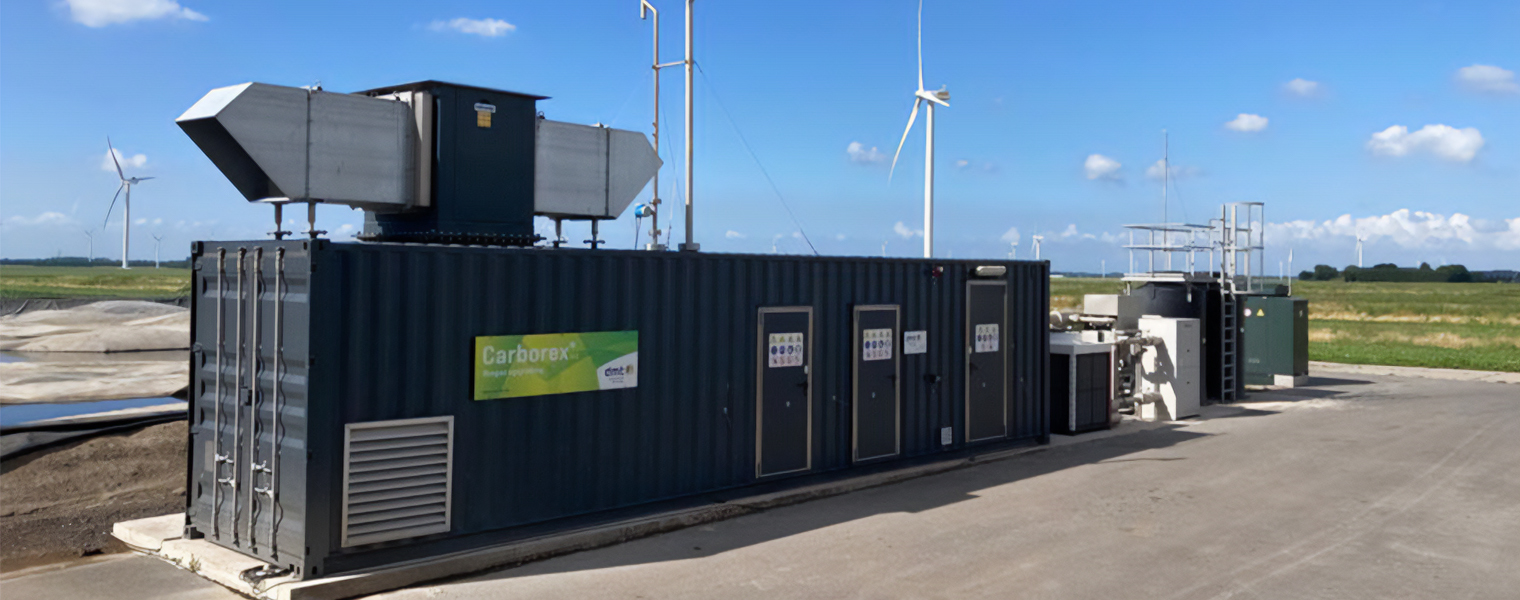
Biomethane Upgrading
Biomethane, also known as renewable natural gas, is a form of biogas that has been processed to remove impurities and made suitable for injection into the existing natural gas grid. Biomethane can be produced from a variety of organic materials such as agricultural waste, sewage, and food waste, making it a promising alternative to traditional fossil fuels for energy production. Biomethane has the potential to greatly reduce total energy sector greenhouse gas emissions by driving a circular economic process. By producing biomethane CO2 emissions from fossil gas are avoided, but also methane emissions from the waste (methane is a much stronger greenhouse gas than CO2). In this way, it is possible to produce a renewable natural gas with a negative CO2 emission.
The Bioenergy Roadmap by the Australian Government has identified that up to 23% of the total gas used in Australia could be derived from Biomethane by upgrading Biogas to quality requirements for Natural Gas and injecting it into the national gas grid.
Renewable gases will be an important element of the energy mix as we facilitate smooth decarbonisation of the energy market, especially for existing domestic users such as households and other industries that rely on gas. Blending renewable gases such as biomethane into the gas network has the potential to bolster supply. Australia’s existing gas networks and pipelines are readying to deliver renewable decarbonised gas.
Hydroflux has partnered with DMT Environmental Technology in the Netherlands. A global organisation headquartered in Europe, and North America that offers the world’s leading biogas upgrading technology specialising in biogas upgrading (CO₂ removal) through membrane separation. DMT Environmental Technology offers over 35 years of experience and has more than 183 operational sites worldwide.
Carborex®MS – Biogas Upgrading
DMT was the first to develop a biogas upgrading system based on high-performance membrane separation: Carborex®MS. This technology has been further developed over the years and is currently widely adopted and the technology of choice in most European countries and US states.
The technology separates CO2 from the valuable methane by using state-of-the-art membrane technology. This process has the advantages of being very reliable, a dry process, no chemicals are involved, having low energy consumption and being easy to operate. The whole system is built on a cladded skid, which results in a small footprint and an easily transportable system. The Carborex®MS is, therefore, a cleantech solution with low operational costs (OPEX).
DMT Carborex®MS:
- Highest performance level
- Reliable technology, experienced solutions provider
- Your specialist every step of the way solutions provider

Find out more
DMT has developed a technology for biogas upgrading using membranes, Carborex®MS. The technology separates CO2 from the valuable methane by using innovative membrane technology.
Biogas consists mainly of methane and carbon dioxide. However, there are still some other components that must be removed before entering the membranes. In many cases, biogas contains H2S, mercaptans and terpenes, which all must be removed. The gas also contains water, which, preferably, is removed before entering the membranes. As a solution, the Carborex® MS contains a pre-treatment section where these components are removed.
The next step to pure biomethane is to compress the gas by up to 16 bar by a compressor. The pressure optimises the separation of methane and carbon dioxide by increasing the permeability of the membrane.
One membrane contains hundreds of hollow fibres. Depending on the raw biogas inlet flow, the number of membranes inside the Carborex®MS varies. We call one set of membranes a stage. While a two-stage membrane configuration can reach a methane recovery of up to 97%, the most common configuration is a three-stage membrane configuration which can reach 99,5% methane recovery. Fundamental in most biogas upgrading projects.
Easy Operation
The Carborex®MS is a modular, easily transportable system with a small footprint. The whole plug-and-play system is started with the simple touch of a button. The system is robust, stable and requires very little maintenance. Because it is a dry process, no after-treatment of waste streams is required.

